
INDIAN FOREST SERVICE ( RETIRED)
MEMBER, BOARD OF MANAGEMENT
FOREST RESEARCH UNIVERSITY
DEHRADUN
DEHRADUN, 22 APRIL 2024:

Let’s Ponder To Conserve This Wealth.
“ Earth provides enough to satisfy every man's need, but not every man’s greed”,……………Mahatma Gandhi
“We have flown the air like birds and swum the seas like fishes but have yet to learn the simple act of walking the earth like brothers,”…. Martin Luther King Jr.
“People in cities may forget the soil for as long as a hundred years, but Mother Nature’s memory is long, and she will not let them forget indefinitely” ………….Henry Cantwell Wallace
“Man can now fly in the air like a bird, swim under the ocean like a fish, he can burrow into the ground like a mole. Now if only he could walk the earth like a man, this would be paradise,”………..Tommy Douglas.

History of World Earth Day:
The first Earth Day was followed on April 22, 1970, and carried out by a senator, Gaylord Nelson from Wisconsin, along with a young activist Denis Hayes. He was encouraged to initiate the event when he observed the harm of the oil spill incident in 1969 and realised the need for an awareness day to enlighten the people about the importance of environmental protection.
In 1990, Earth Day was globally recognised as 20 crore people from 141 nations joined in the forces to promote recycling around the globe, laying the groundwork for the 1992 United Nations Conference on Environment and Development, Brazil (Rio de Janeiro).
In 2010, Earth Day became a crucial moment for people all over the world to act for the environment. Lakhs of people from 193 countries have joined the environmental movement world over.
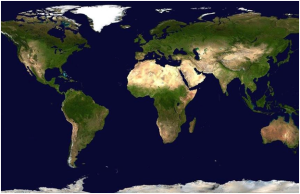
Importance of World Earth Day:
Natural disasters are growing increasingly dangerous to humanity, owing to an increase in population and global warming, leading to a change in climate and an increase in sea levels. It is more likely that in the future, mankind will be evident of numerous disasters every year that will kill thousands of people.
In 2022, many significant green policy proposals were adopted by governments all over the world. However, only a few are implementing measures to achieve Greenhouse gas (GHG) neutrality by 2050. According to the recent Intergovernmental Panel on Climate Change report, if additional immediate steps are not taken to reduce greenhouse gas emissions, the earth will experience temperatures that are 3.2°C higher than pre- industrial levels, which would be disastrous for the human life.
It’s the responsibility of everyone to protect the earth from natural calamities and provide a better place to live and sustain. World Earth Day signifies the importance of drafting new policies by the local environmental authorities and implementing action on existing environmental issues. In addition, it educates public about factors that affect our ecosystem and ways to protect and conserve earth’s flora and fauna.
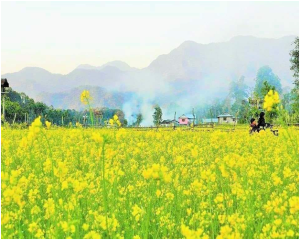
World Earth Day 2024 Theme:
This year, the Earth Day celebration is focused on the theme “Planet vs. Plastics”.
This theme is aroused by the historic UN treaty on plastics, which is expected to be ratified by the end of 2024. Also, it aims to stimulate awareness of the harms of plastic pollution for human and universal health.
Actions to prevent from plastic pollution.
Decreasing single-use plastic consumption.
Managing reusable bags, bottles, and containers.
Appropriately resolve the plastic waste, recycle whenever possible.
Advocating proposals promoting plastic alternatives.
Teaching and generating awareness to masses on the impact of plastic pollution.

Preceding Earth Day Themes Year Wise:
All previous themes serve a great purpose. Here we have gathered all themes below:
The year 2005 – Healthy Environment for Children: Earth Day in 2005 was intended to encourage people to preserve the environment for generations to come.
The year 2006 – Science and Faith: To protect the planet, we should put our trust in science.
The year 2007 – Be Kind to the Earth – starting from saving resources: We need to spend our Earth’s resources wisely to preserve them. Nature’s resources were the focus of Earth Day 2007.
The year 2008 – Trees Please: Trees are vital to the survival of the planet. The purpose of Earth Day 2008 was to encourage people to protect trees.
The year 2009 – How Do You Get Around: The 2009 Earth Day celebrations focused on ways to reduce climate change’s adverse effects.
The year 2010 – A Billion Acts of Green: Small efforts can make a big difference.
The year 2011 – Clear the Air: People were encouraged to limit air pollution activities in 2011’s Earth Day theme.
The year 2012 – Mobilize the Earth: Every individual should get involved in protecting the environment.
The year 2013 – The Face of Climate Change: To raise public awareness of climate change’s adverse effects.
The year 2014 – Green Cities: We don’t want concrete jungles, but green cities full of vegetation.
The year 2015 – It’s Our Turn to Lead: People, leaders, and activists pledged to protect the environment on Earth Day 2015.
The year 2016 – Trees for the Earth: Planting more trees to prevent deforestation was one of the goals of this campaign.
The year 2017 – Environmental and Climate Literacy: There was a major focus on awareness of climate change on Earth Day 2017.
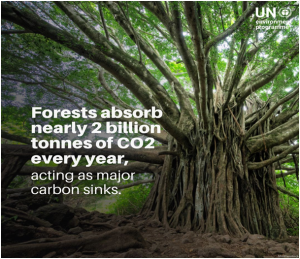
The year 2018 – End Plastic Pollution: People were urged to limit plastic usage during the Earth Day 2018 event.
The year 2019 – Protect Our Species: Globally, Earth Day raises awareness of the destruction humans have caused to species due to their activities.
The year 2020 – Climate Action: Climate change was the focus of Earth Day 2020, and people were encouraged to act against it.
The year 2021 – Restore Our Earth: Every aspect of life on Earth is interconnected, which is the message of Earth Day 2021.
The year 2022 – Invest in Our Planet: A planet-wide partnership began on Earth Day.
The year 2023 – “Invest in Our Planet”, calling for businesses to shift towards sustainable practices.
For 2022 and 2023 themes were same but with different concepts as mentioned above.
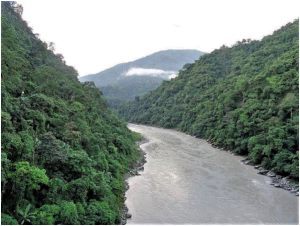
Challenges Before The Earth:
It’s important that we face the realities of the problems we are up against. Here are a few facts to know and explore about the impacts:
- Global average temperatures are on the rise, thanks to greenhouse gasses like carbon dioxide. Since 1880, Earth’s temperature has risen by an average of 0.14 degrees Fahrenheit per decade, but the rate of warming since 1981 is more than twice as fast, clocking in at 0.32 degrees Fahrenheit per decade.
- The average annual carbon emissions per American is 20 tons, compared to a world average of 4 tons.
- Food waste is also a major problem — a third of the world’s food supply is wasted every year, while 30% of the global population lives in a state of food insecurity.
- Systems of overconsumption and extraction lead to depleted environments and social inequity, as 80% of the world’s natural resources are used by just 20% of the population.
- Personal responsibility is important, but it’s also key to remember that, according to the BBC, the fossil fuel industry has made an estimated $2.8 billion in profits per day for the last 50 years, governments around the world currently spend $1.9 trillion per year on environmentally harmful subsidies, and a small number of companies are responsible for a significant percentage of global emissions.
Climate Change Impacts:
- Extreme weather disasters, like floods, storms, droughts, and heat waves are on the rise — and so is the displacement of people impacted by climate disasters.
- The global economy loses billions of dollars annually due to climate disasters, damage to infrastructure, lost productivity, and increased healthcare costs.
- Things like ocean acidification and deforestation impact plants and animals, leading to decreased biodiversity across the planet.
- Human health is threatened in a myriad of ways; as we experience increased respiratory and cardiovascular diseases, allergies, food- and water-borne illnesses, infectious diseases, injuries, hunger, and threats to mental health.
- Rising sea levels and melting ice can and will threaten coastal communities and low- lying islands — often where many Indigenous peoples live.
- Food insecurity and water scarcity are exacerbated.
Earth Day Movements:
- Support Our Pollinators!
Plant plants and flowers that attract pollinators like bees, butterflies, hummingbirds etc
- Cleanse places of plastic:
Let’s take earnest efforts to clean up plastics and trash from our nearby areas and drains. Help agencies to collect plastics and encourage it’s recycling.
- Plant a Tree!
Let’s plant, encourage and support tree plantings as trees help in capture of carbon, cool sweltered places, benefit agriculture, support pollinators, decrease the risk of disease transmission, and boost local economies.
4.Save Water!
We waste away a lot of water. Avoid overwatering your plants and improve their health by knowing how much your garden really needs. Avoid watering your garden vegetables and plants from overhead, which invites fungal disease. Water at the soil level. Harvest your rainwater from a roof, gutters, and sky with a rain barrel.
- Get Others Involved!
Pass down a love of nature and plants to others, especially the kids. There are lots of opportunities for hands-on learning experiences outside.
- Stop Pesticides and Chemicals in the Garden:
Let’s do and encourage others to start growing plants in our farms and gardens without chemicals or pesticides. In a way that works and even saves money. Much of this is simply about focusing less on the plant and more on the health of the soil that favours the plant. If it’s nutrient-rich with organic matter, plants thrive better.
- Utilize Wildflowers and Indigenous Plants:
Wildflowers and indigenous species are not only beautiful but also attract native and beneficial insects that improve both pest control and pollination—meaning bigger flowers and better harvests. Try to simply add a couple of native plants to your garden each year, and you’ll be amazed at the difference—they’ll bring in pollinators as well as birds!
Positive Initiatives:
- And climate good news is our favourite. Here are a few to get you feeling inspired:
- Few animals are already rebounding (butterflies, whales, tigers, bison, gorillas, and ugly animals!) thanks to thoughtful conservation efforts!
iii. All initiatives to restore the ozone layer since 1989 has paid off — and now it’s poised to make a full recovery! Climate action works!
- Communities have already begun coming together to organize community composting efforts, build disaster-resilient neighbourhoods, plant more urban trees to combat environmental racism, use building materials that absorb CO2, turn sewage into green energy buy electric buses, and paint streets white to reduce heat.
- People are even reorganizing entire ways of shaping society and our economy to serve people and planet better.
- Indigenous communities have long cared for the planet and continue to do so. In just the last few years, they’ve driven two oil companies out of the Arctic, are creating innovative solar solutions, continue to share their time-honoured farming techniques, and are restoring and caring for forests in Colombia, California, and the Amazon Rainforest.
vii. We’re protecting oceans and marine life by… sinking old buses into harbours, adding oysters to filter polluted waters.
viii. Everyone is striding up to take positive climate actions. A Google competitor plants trees with every search, a soccer club just went carbon-neutral, trees are tweeting, and scientists invented a sustainable kind of attraction made from fruit instead of microplastics.
Lifestyles Changes required To Help Earth:
We know nobody can ever be completely “zero waste,” but that doesn’t mean simple lifestyle or sustainability changes are unimportant! Even a few small changes can make a big difference. Here are a handful you can consider starting this Earth Day:
Make energy-efficient home swaps.
Choose seasonal produce next time you get groceries.
Try to buy — and waste — less. And if you do need something, consider investing in mindful eco-friendly (or pre-loved!) products.
Compost your food scraps.
Consider going meatless on any one day in a week.
Commit to going a year without using plastic water bottles.
Switch to paperless billing.
Plant native pollinators.
“The thirsty earth soaks up the rain,
And drinks, and gapes for drink again.
The plants suck in the earth and are.
With constant drinking fresh and fair”. ~~~~ Abraham Cowley (1618–67)

Advertisement:





















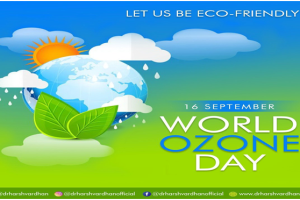







Add Comment